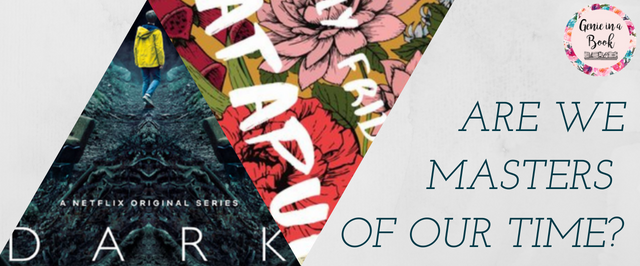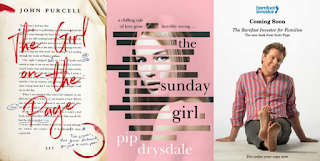Waiting on Wednesday is a weekly prompt hosted by Breaking the Spine where the participants tell their readers about an upcoming release they are looking forward to. This week I've got two anticipated releases lined up: The Dreamers by Karen Thompson Walker and some non-fiction with the latest edition of the Quarterly Essay.
In an isolated college town in the hills of Southern California, a freshman girl stumbles into her dorm room, falls asleep—and doesn’t wake up. She sleeps through the morning, into the evening. Her roommate, Mei, cannot rouse her. Neither can the paramedics who carry her away, nor the perplexed doctors at the hospital.
Then a second girl falls asleep, and then another, and panic takes hold of the college and spreads to the town. As the number of cases multiplies, classes are canceled, and stores begin to run out of supplies. A quarantine is established. The National Guard is summoned. Mei, an outsider in the cliquish hierarchy of dorm life, finds herself thrust together with an eccentric, idealistic classmate.
Two visiting professors try to protect their newborn baby as the once-quiet streets descend into chaos. A father succumbs to the illness, leaving his daughters to fend for themselves. And at the hospital, a new life grows within a college girl, unbeknownst to her—even as she sleeps. A psychiatrist, summoned from Los Angeles, attempts to make sense of the illness as it spreads through the town. Those infected are displaying unusual levels of brain activity, more than has ever been recorded. They are dreaming heightened dreams—but of what?
Written in gorgeous prose, The Dreamers is a breathtaking novel that startles and provokes, about the possibilities contained within a human life—in our waking days and, perhaps even more, in our dreams.
At the moment with Christmas shopping looming for this year's bookish haul, looking at releases for 2019 may seem far away! Nonetheless, I can't wait to read this one from Karen Thompson Walker. Her debut The Age of Miracles is a firm favourite of mine, and she writes fiction in a way which captures human nature at its most fragile, on the cusp of something extraordinary. Stay tuned, I'll definitely be posting more about this one once I get my hands on a copy!
We feel bereft without our phones and their cameras and the feeling of instant connectivity. It gets hard to pick up a book, harder still to stay with it. In this eloquent and profound essay, renowned critic Sebastian Smee brings to the surface the idea of inner life - the awareness one may feel in front of a great painting or while listening to extraordinary music by a window at dusk or in a forest at night. No nostalgic lament, this essay evokes what is valuable and worth cultivating - a connection to our true selves, and a feeling of agency in the mystery of our own lives.
At the same time, such contemplation puts us in an intensely charged relationship with things, people or works of art that are outside us. If we lose this power, Smee asks, what do we lose of ourselves?
Expanding my reading habits into non-fiction has been both refreshing and eye-opening this year, and the latest edition of the quarterly essay seems right on point in an age where there is little time left to stop and be comfortable in our own thoughts; or simply appreciate life outside the screens we have become so attached to. I've got Art as Therapy by Alain de Botton and Upstream by Mary Oliver on my list as well which cover some similar ground, so I'll be looking forward to reading them all over the holidays!
































